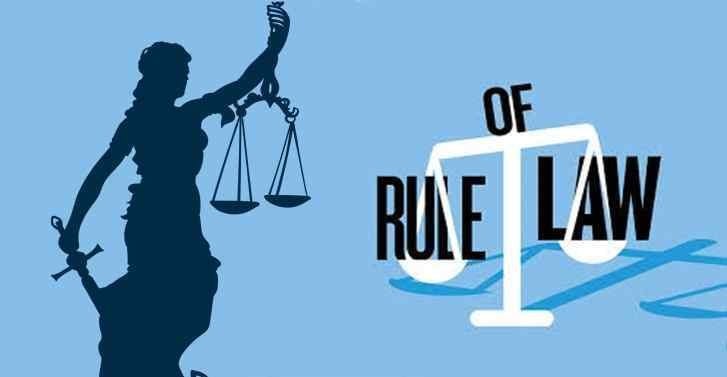1830 Custody Case Leads to First "Mothers' Rights" Law
But That Was Just an Illusion
The first time a custody case went public in England was in the 1830’s, nearly two centuries ago. It led to the passage of the Custody of Infants Act—the first law that supposedly gave mothers the right to maintain custody after separation—until they turned 7.
But that was an illusion.
The Old Boys made sure that this law—and every law impacting custody that followed—would give the appearance and promise of change, of justice, of equality, of protection, but in practice, would not. And, in the end, in practice is all that matters.
Two centuries of this ruse.
The reality is, men have made sure to maintain their power to take children from mothers, ever since women, starting with Caroline, began to oppose the draconian treatment of mothers and children post-separation. This power to remove children from their primarily bonded, loving mothers represents the most serious, ongoing cause of child and maternal trauma throughout the millennia. Yet it continues to this day, despite the illusion of change.
Caroline’s case is part of our “History of the Crisis” series. This series provides perspective which informs the understanding of the nature and cause of the Crisis, and, thus, the solution that can end it.
CAROLINE’S STORY
Caroline was born in 1808 in England. She had two sisters and, due to their beauty and accomplishments, they would eventually become known in aristocratic society as “The Three Graces”.
In 1827 at the age of 19, Caroline married a lawyer named George Norton. George was a possessive and jealous man who became increasingly emotionally abusive and violent.
Although unhappy in her marriage, Caroline loved being a mother to her three sons and expressed herself through prose, poetry and novels. She used her beauty, wit and political ties to become a popular socialite and secured many prominent connections within the upper class. She was known for emphatically speaking her mind at a time when women were expected to be reticent and demure.
Less than 10 years after she married, Caroline had had enough of George’s abuse so she took the radical step of leaving him at a time when that was nearly impossible. He retaliated by keeping the marital funds from her and refused to give her any child support. She managed to survive on her earnings as an author at first, but George was permitted by a judge—and the law—to take her post-separation earnings as well, leaving her penniless. She did get some restitution and retribution, though, by running up considerable debt in his name.
George also wreaked vengeance by taking her precious boys away from her—the age-old, unsurpassed way to punish and torture women who dare misbehave or leave. He gave them to relatives in Scotland and would not tell her where they were. Even when she discovered their location, she could not get them back—or even see them—because they were legally his property and he could do whatever he wanted with them.
Those dear children, the loss of whose pattering steps and sweet occasional voices made the silence of [my] new home intolerable as the anguish of death
...what I suffered respecting those children ... under the evil law which suffered any man, for vengeance or for interest, to take baby children from the mother.
In the above quote, Caroline exposes that the “evil law” was enabling men to leverage custody for vengeance or their own interests. So she became an activist at 28 years-old and pushed for new law. She argued it was a mother’s natural right to have her children with her at young ages, and children needed their mother as well.
Her connections must have helped because in just three years the “Custody of Infants Act” was passed. This law permitted mothers to petition for custody of children up to the age of seven, and for visitation with older children. Note that this did not give mothers a right to custody. They still had to ask and were at the mercy of a judge.
NEW LAW; STILL NO KIDS
Despite her success implementing this new statute, Caroline was still not able to see her own children—a glaring red flag that new custody laws would not actually make a difference.
6 years after her divorce, and the complete excision of her children from her life, her youngest son died. A minor infection led to sepsis, said to be due to George’s negligence.
After her son’s death, George relented and began to allow Caroline to visit her other two boys, but he retained sole custody and would only allow her to see them while supervised. It is interesting that the first known PSC case involved a mother who was required to be supervised.
This demonstrates that supervised visitation has always been primarily a means to keep men in control after separation. Long-time professional supervisors have admitted that the large bulk of their practice is supervising women who have reported abuse by the father and were subsequently deprived of custody.
Caroline’s case garnered much publicity when George tried to extort the Prime Minister, a good friend of Caroline’s, by accusing him of having an illegal affair with her. Because she could not legally divorce George, any man who had a relationship with her was violating his property rights. Lord Melbourne denied the affair and refused to pay up, so George took him to court.
This was the scandal of their time. After a long and public trial, George lost. Although it damaged her reputation, it helped bring attention to the plight of women and children being treated as property of men, even after separation.
CLASH OF DOCTRINES
In the beginning, there was “Absolute Father Rule”. Men literally owned children, just like property, and could do with them what they pleased after separation. This meant men could legally take children from mothers for any reason or none—the ultimate instrument of control and revenge.
The logic was that if men did not have this power over children, there would be nothing to stop women from leaving them. There was no concern at all for the welfare of the children, i.e. it was a gender power issue. This absolute power enabled men to use children as pawns to control and punish women—the most important power for men to maintain.
After Caroline was successful in getting the Custody of Infants Act passed, mothers were allowed to petition the courts for custody of children. Petition being the operative word. They still had to go before a judge and were at his mercy.
This was the beginning of what would soon be termed the Tender Years doctrine, which was based on the principle that it was better for children to live with their mothers when they were very young. This doctrine was the precursor to the Best Interests of the Child doctrine that prevailed for over a hundred years in most countries.
Note that the best interests doctrine actually benefitted men. It had the effect of relieving them of and obligating mothers to do all the hard, “icky years” of parenting—poop, pee, snot, illness, etc.—which men did not want to do. And it still did not prevent them from taking custody at any age if they wanted, because judges would give it to them on bogus grounds that the mother was a liar or mentally ill or whatever. (Sound familiar?)
Most recently, the Equal Parenting doctrine has taken hold. This also gives men more power over women and children.
So from the beginning of custody reform, it was not about women’s rights or power to finally be able to keep or protect their precious children. The doctrines went straight from men’s absolute right to custody to what’s (supposedly) best for children and, ultimately to parents’ rights (with some residual talk of what’s best for kids).
THROUGH LINE
From Caroline’s activism to the present, women have been losing custody in droves and unable to protect their children, along with being impoverished. While it is important to recognize and praise Caroline for her great efforts and accomplishments, it’s important to recognize the Old Boy subterfuge that kept her law, and all subsequent laws, from making any significant difference.
The through line is that, from Caroline’s brave activism to the present day, women have never had the power to maintain custody their children post-separation, regardless of doctrines or laws. The reason is because women have never been afforded the court process that is every citizen’s right in a democracy—where the Rule of Law reigns, not doctrines fabricated by men especially for the family.
The principle of the Rule of law guarantees all citizens impartial justice in courts where laws are applied fairly and evenly, and human rights are upheld. A jury is an integral part of this process so that rights and laws are not violated by powerful officials.
Women have never been afforded this basic democratic right when it comes to determining custody of their children, the most important aspect of their lives. Instead, they have been subject to unjust decrees by judges.
The only way for women to finally realize this guaranteed right is to be afforded access to the very system democracies designed to provide it. Family Court does not; in fact, it is specifically designed to get around that pesky right, precisely so men can maintain power over “their” women and children post-separation.
Hence, family courts must be dismantled entirely and women must focus on fighting for what is rightfully theirs: access to a regular civil court with a jury for the determination of custody and finances post-separation.
In order to have the power to do make this historical change that will upend men’s most coveted power, women must unite as a class and demand access to what is our right as citizens: a just, democratic process.
Join us at Women’s Coalition International.
You may also give a gift subscription to a mother who is going through her own Family Court nightmare and doesn’t understand why.
Or you can support the Coalition’s work through a one-time or recurring contribution at paypal.me/TheWomensCoalition.
All contributions, large and small, are greatly appreciated!





